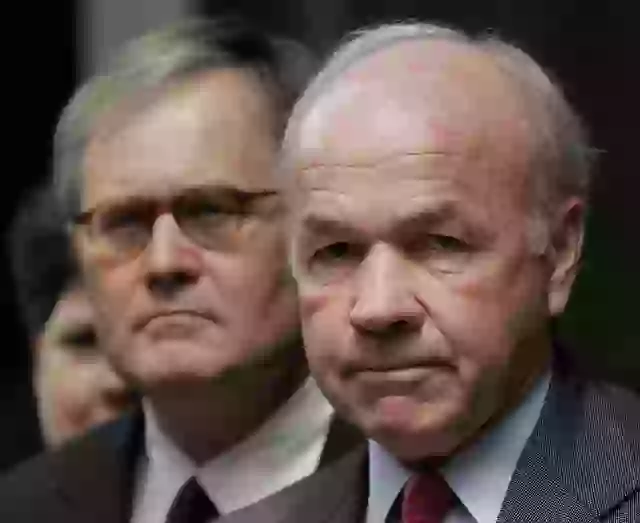Enron CEO and Chairman Kenneth L. Lay misled employees to believe that the company was in a good financial position shortly before the energy firm went bust.
Back in 2001, Enron – an American energy, commodities, and services company – filed for bankruptcy, which was later revealed to have been caused by internal fraud at the company.
At the time, it was the US’ largest corporate bankruptcy in history.
Enron was founded by Lay in 1985 and went on to have over 20,000 employees at the time of its collapse. But Lay and some of his senior executives long knew that Enron was trouble – yet failed to tell anyone.

In fact, they went out of their way to assure employees and board members that the company was doing well.
With this in mind, in the months leading up to Enron’s collapse, Lay encouraged employees to buy stock and ‘talk up’ the idea to their family and friends too.
“Talk up the stock and talk positively about Enron to your family and friends,” he told them on an electronic forum in September 2001, two months before filing for bankruptcy.
His message went on, the Los Angeles Times previously reported: “The company is fundamentally sound. At current stock prices… this seems to be an incredibly cheap stock.”

Fast forward to July 2002 and Lay was indicted on charges of conspiracy, securities fraud, wire fraud, bank fraud and making false statements.
It’s thought the company lost around $74 billion, CNN reports.
Enron co-CEO Jeffrey K. Skilling and former Enron Chief Accounting Officer Richard Causey were also hit with charges.
Deputy Attorney General James B. Comey, who headed the President’s Corporate Fraud Task Force at the time, said in a statement: “The indictment charges that Lay, Skilling, Causey and others oversaw a massive conspiracy to cook the books at Enron and to create the illusion that it was a robust, growing company with limitless potential when, in fact, Enron was an increasingly troubled business kept afloat only by a series of deceptions.”

“These charges demonstrate the Department’s commitment to the rule of law, its commitment to the principle that no one is above the law, and its commitment to unravel even the most complex of fraudulent schemes,” Comey continued.
Lay was ultimately convicted of his crimes, but died of a heart attack before his sentencing.
Elsewhere, Skilling was convicted on one count of insider trading and five counts of making false statements. He was sentenced to over 24 years behind bars, but was released in 2019 after 12 years.
